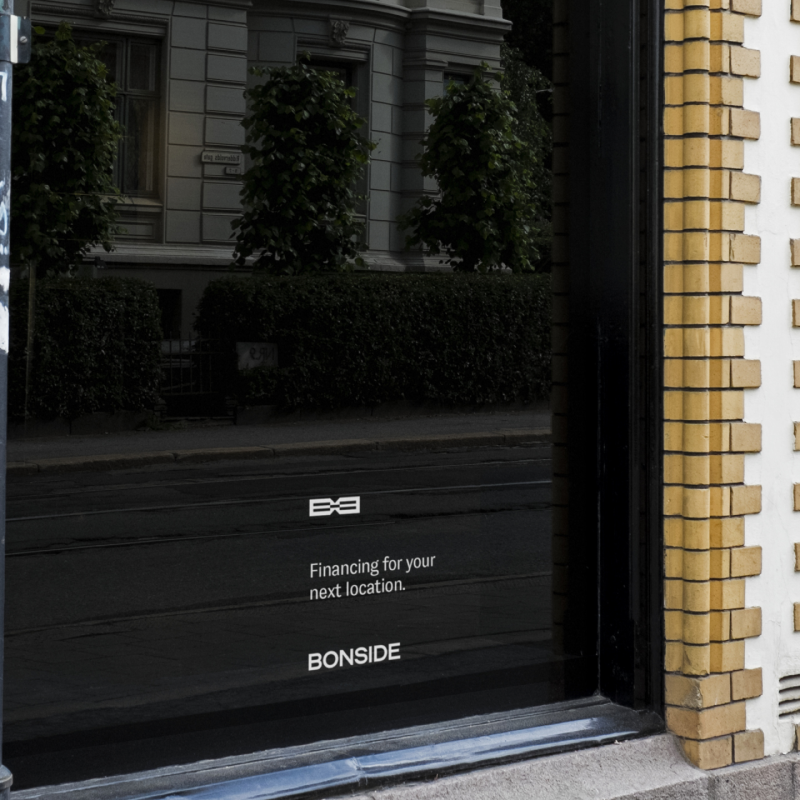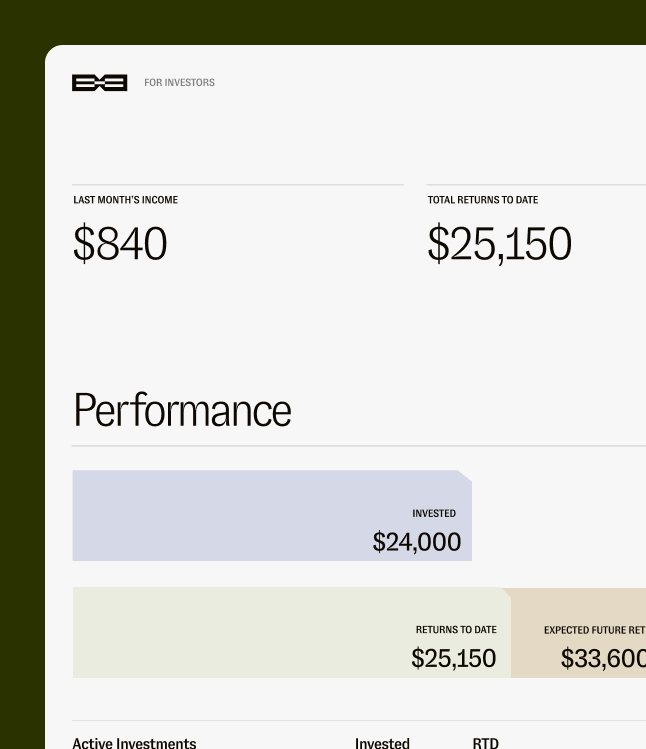
Think about your favorite businesses: your local pizza place, the café around the corner that makes life-changing croissants, the nail salon where you have a standing weekly. All the places you tell your friends and family about, the spots you wish you could pick up and drop right next to your home, your office, your mom’s house. The small businesses we know, love and want to see succeed.
Small & medium businesses (SMBs) account for 99.9% of companies in the U.S. While many of these businesses are growth-minded and dream of opening 2, 5, 10, even 20 locations, getting the capital to do so has historically posed a challenge. Why not raise venture capital? Well, SMBs in brick & mortar retail or selling physical products tend not to fit the model that most venture capital investors look for in an investment: a path to a $1B valuation, high margins, little to no capex. So, while these SMBs are capable of becoming strong, healthy, high-growth operations, they are typically limited to a handful of debt options that have significant tradeoffs: asset-backed lending carries high interest rates, merchant cash advances don’t allow for ample capital to scale, bank debt requires a high guarantee and/or interest rate. And, none of these options carry the added benefits of venture capital dollars: resources, network, advisory services, mentorship and more.
Then there’s the investor side of the equation: retail investors are increasingly seeking investment opportunities outside the stock market, but these are also limited either by access to venture or other exclusives. Retail investor market participation continues to trend upwards, with their share of total equities trading volume now approaching 25%, up from 20% in 2020.
Enter Bonside, a new platform that leverages revenue-based financing to connect high net worth retail investors with stable, small businesses primed for growth. Says Founder Neha Govindraj: “There is a misperception that if you’re not considered VC-backable, you’re not good enough, when it’s really a matter of creating a different financial vehicle that puts small businesses on the same pedestal as their VC-backed counterparts.” Bonside provides a point of validation, not to mention offering retail investors a suitable investment option that delivers above-market returns. Today, retail investors looking to diversify beyond the stock market are, in many ways, limited to equity investing, which requires a liquidity event to see returns, (at the early stages, potentially 7–10 years post-investment), comfort with high levels of risk, the capacity and skill set to diligence the business and access to promising, competitive investment opportunities.
Put simply, Bonside is poised to change the fundraising landscape for small businesses and accredited investors seeking new opportunities — with a key focus on the brick-and-mortar space.
How It Started
Neha was raised in a family of entrepreneurs; she knew, even before earning her B.S in Economics and Computer Science from Northwestern University, that she wanted to start her own business. At Northwestern, she became President of ISBE, a 200-person business organization divided into divisions that work on projects ranging from a consultancy to an investment club. Neha put in her all, loving every second — her first true exposure to entrepreneurship.
In parallel, Neha was also pursuing her interests in the consumer landscape, fascinated by founders of now-mainstream companies like Warby Parker and Birchbox. She discovered that each of these founders (among others) had worked at Bain & Company during some point in their career. So, Neha applied as an intern and subsequently took on a full-time role, primarily focusing in consumer practice and private equity. Neha joined Bain, as she remarked, “to become a better decision maker before starting my own business.”
Through Bain’s externship program, Neha spent six months working with the C-suite team at beauty brand Glossier, gaining robust insight into how a young consumer business operates. Upon leaving Bain, Neha jumped into the world of consumer businesses herself, teaming up with a third generation aesthetician who had the idea to create a 30-minute facial, now a thriving business — the popular Glowbar in New York City (and beyond). To build Glowbar, Neha and her co-founder focused on developing the model, operationalizing the concept, creating the customer experience, managing inventory — all the elements required to build the strategy for the business. By launching their second and third Glowbar locations, Neha and the team created a complete, seamless playbook for opening new doors, which led her to the next question: “How do we open even more doors as quickly and efficiently as possible?”
In an effort to supercharge the business (during COVID, no less), Neha shifted gears and began to spend the bulk of her time reflecting on and searching for an answer to that very question; she found through conversations with venture capital, angel and private equity investors, debt providers, and real estate professionals that the solution wasn’t straightforward. She was faced with new questions: if there is a centralized source of growth capital for the tech industry in venture capital, why wasn’t there a counterpart for other modernized, constantly evolving industries? And, with investors looking to impact the growth of small businesses and partake in the upside, why wasn’t there a space to build one?
Building Bonside

Determined to identify a formula that would benefit both investors and small businesses, Neha stepped down from the day-to-day at Glowbar to focus on building Bonside. It started with the model. Given the huge ecosystem of healthy, growth-minded businesses generating real cash, she had an opportunity to structure early-stage investing in this space differently than it exists in VC; rather than allowing investors to purchase a percentage of her business (as is the case with equity investment), she could give investors access to a percentage of real revenue in real time, paid back until a fixed multiple was reached. This seemingly simple yet breakthrough idea is a win-win: business owners get to maintain ownership of their businesses while bringing on capital to grow, and investors gain real-time access to returns with significant upside. Until Bonside, there have been few viable funding options for steady, stable startups outside the venture ecosystem.
In what may seem a counter-intuitive move, Neha decided to bring investors into Bonside, the business, so that it could reach more businesses, faster. While equity may not solve the needs of the small businesses Bonside serves, Bonside itself is a perfect fit for venture: a scalable, high-growth, high-margin financial technology business. Neha raised $1.1M in pre-seed capital from TMV and a handful of other early-stage partners, and brought on a Head to Finance to be her right hand in diligencing and underwriting businesses.
Their first step: codifying the “Repeatable Revenue Agreement,” the foundation of any Bonside investment; the agreement mirrors the structure Neha originally outlined with the objective of making the documents easily digestible for small business owners and helping them save money on legal fees. For these business owners, the agreement offers non-equity capital and access to executive resources (i.e. advisors and specialists for small and growing businesses). On the other side, investors see above-market returns without a liquidity event, reduced risk as compared to angel investing and high IRR via passive income.
How It Works

By way of example: an investor gives $500k to a small business yielding $250k in monthly revenue. Investors receive 6.25% of revenues each month, until the investor has received $750k back. On a monthly basis over 48 months, this yields a 20%+ IRR, with no growth forecasted in the company’s revenue. Any additional revenue achieved over $250k monthly accelerates the repayment. Simply put, if the company grows, the investor gets repaid faster.
Bonside’s ultimate goal goes beyond funding and includes creating a full suite of tools for small businesses, with a laser focus on brick and mortar. The company facilitates financing through an Accredited Investor Marketplace (AIC) that allocates capital to the small businesses on the platform. (The AIC is available or signup from any accredited investor; investments start at $10,000). The AIC also includes subject matter experts, real estate brokerage owners, CFOs, and other partners and advisors, giving these small businesses added resources — similar to those they may get access to through VC.
Why Brick and Mortar?
Says Neha: “The pandemic showed us that brick and mortar is here to stay; nobody wants to be 100% digital.” Consumer sentiment indeed begs for stability and connection, which we have all witnessed in the series of joyful reunions over the last year. Bonside focuses on businesses with repeat customers, e.g., all-day cafés, boutique fitness, health and wellness, pet and dental clinics, child care services, yoga studios, ice cream shops. “Any business, ‘’ says Neha, “that has four walls and requires a service. We’re creating a new vehicle for brick and mortar, a way of financing that doesn’t have to be all or nothing.” Bonside’s firm conviction is that there is a clear way to build a healthy business on a stable trajectory and consistent returns.
The Opportunity

The long-term vision for Bonside is not only in financing, but also their integration into small businesses at the earliest stage, with visibility into their growth trajectories and progress. With this information, they can utilize advanced tech to become even more value-add, creating better outcomes for Bonside and for the small businesses they serve. And, while Bonside plans to maintain an accredited marketplace to participate in deals, the team also plans to roll out funds so that larger institutions may participate, which in turn enables Bonside to bring on more small businesses. In essence, Bonside is designing a new asset class, merging the worlds of consumer and private equity, restructuring assets in a way that’s productive for the community at large, and with a consumer lens that positions these non-venture-backed small businesses as equals to their VC-backed peers.
We asked Neha what advice she’d give to new entrepreneurs hesitant to take the leap. Here’s what she had to say:
“Ask yourself: do you believe — down to your core — in what you’re building? Does your solution need to exist, and will its existence improve the world? If the answer is yes, don’t ever question it again. Grow your confidence off that belief and project it into the world.”
If you’re interested in signing up as an investor or business on Bonside, please reach out to access@bonside.com.
Written by Emma Silverman, Principal at TMV